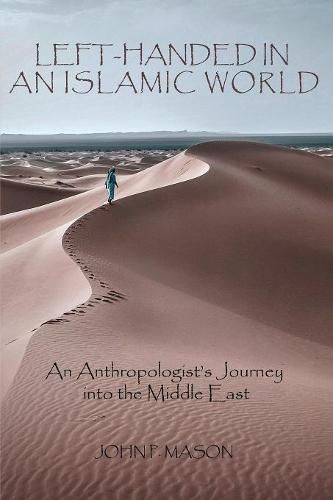Readings Newsletter
Become a Readings Member to make your shopping experience even easier.
Sign in or sign up for free!
You’re not far away from qualifying for FREE standard shipping within Australia
You’ve qualified for FREE standard shipping within Australia
The cart is loading…






This title is printed to order. This book may have been self-published. If so, we cannot guarantee the quality of the content. In the main most books will have gone through the editing process however some may not. We therefore suggest that you be aware of this before ordering this book. If in doubt check either the author or publisher’s details as we are unable to accept any returns unless they are faulty. Please contact us if you have any questions.
A major aim of the book is to present stories of Arabs the author met and lived with as a social anthropologist. The stories cover a period from 1968-2012. Lawrence of Arabia serves as an inspiration for the journey. Throughout the book the author calls upon a significant amount of history to give a background and to contextualize the stories.
The stories describe the social lives of Arabs in a variety of places, those living in an oasis village, others in a mid-sized city, and yet others in a major metropolis. Some of the places are conflict or post-conflict zones. One is in a state of war. The countries include Libya and Egypt for longer periods and many other Arab countries for shorter visits. In most of the stories, the Arabs are Muslims, though in some they are Christians.
The book presents Islam in its many shapes and different contexts. At its ‘best, ’ Islam will be seen as lived by Libyan Desert oasis villagers in creating a harmonious, well-lived life. In other cases, Islam will be glimpsed in ways not so favorable, especially in the treatment of non-Muslim Arabs living in Islamic societies. The author touches on a few theories as to why conflict is endemic to the Middle East. But none of these theories accounts fully for the recent emergence of the egregious behavior of such self-acclaimed groups as the Islamic State or ISIS, who pervert the religion to achieve their renewed Caliphate prophesies.
Being left-handed in a right-handed Islamic World was for the author a metaphor for some of the complexities of living in that World as a development anthropologist, and also when developing programs as an international development consultant for firms tied to USAID and the World Bank. Stories of success and folly of such programs in the Middle East are instructive for development practitioners.
The larger context raises questions about the Middle East and its perennial involvement in conflict, including the Arab-Israeli situation and the place of ISIS and al-Quaeda.
$9.00 standard shipping within Australia
FREE standard shipping within Australia for orders over $100.00
Express & International shipping calculated at checkout
This title is printed to order. This book may have been self-published. If so, we cannot guarantee the quality of the content. In the main most books will have gone through the editing process however some may not. We therefore suggest that you be aware of this before ordering this book. If in doubt check either the author or publisher’s details as we are unable to accept any returns unless they are faulty. Please contact us if you have any questions.
A major aim of the book is to present stories of Arabs the author met and lived with as a social anthropologist. The stories cover a period from 1968-2012. Lawrence of Arabia serves as an inspiration for the journey. Throughout the book the author calls upon a significant amount of history to give a background and to contextualize the stories.
The stories describe the social lives of Arabs in a variety of places, those living in an oasis village, others in a mid-sized city, and yet others in a major metropolis. Some of the places are conflict or post-conflict zones. One is in a state of war. The countries include Libya and Egypt for longer periods and many other Arab countries for shorter visits. In most of the stories, the Arabs are Muslims, though in some they are Christians.
The book presents Islam in its many shapes and different contexts. At its ‘best, ’ Islam will be seen as lived by Libyan Desert oasis villagers in creating a harmonious, well-lived life. In other cases, Islam will be glimpsed in ways not so favorable, especially in the treatment of non-Muslim Arabs living in Islamic societies. The author touches on a few theories as to why conflict is endemic to the Middle East. But none of these theories accounts fully for the recent emergence of the egregious behavior of such self-acclaimed groups as the Islamic State or ISIS, who pervert the religion to achieve their renewed Caliphate prophesies.
Being left-handed in a right-handed Islamic World was for the author a metaphor for some of the complexities of living in that World as a development anthropologist, and also when developing programs as an international development consultant for firms tied to USAID and the World Bank. Stories of success and folly of such programs in the Middle East are instructive for development practitioners.
The larger context raises questions about the Middle East and its perennial involvement in conflict, including the Arab-Israeli situation and the place of ISIS and al-Quaeda.